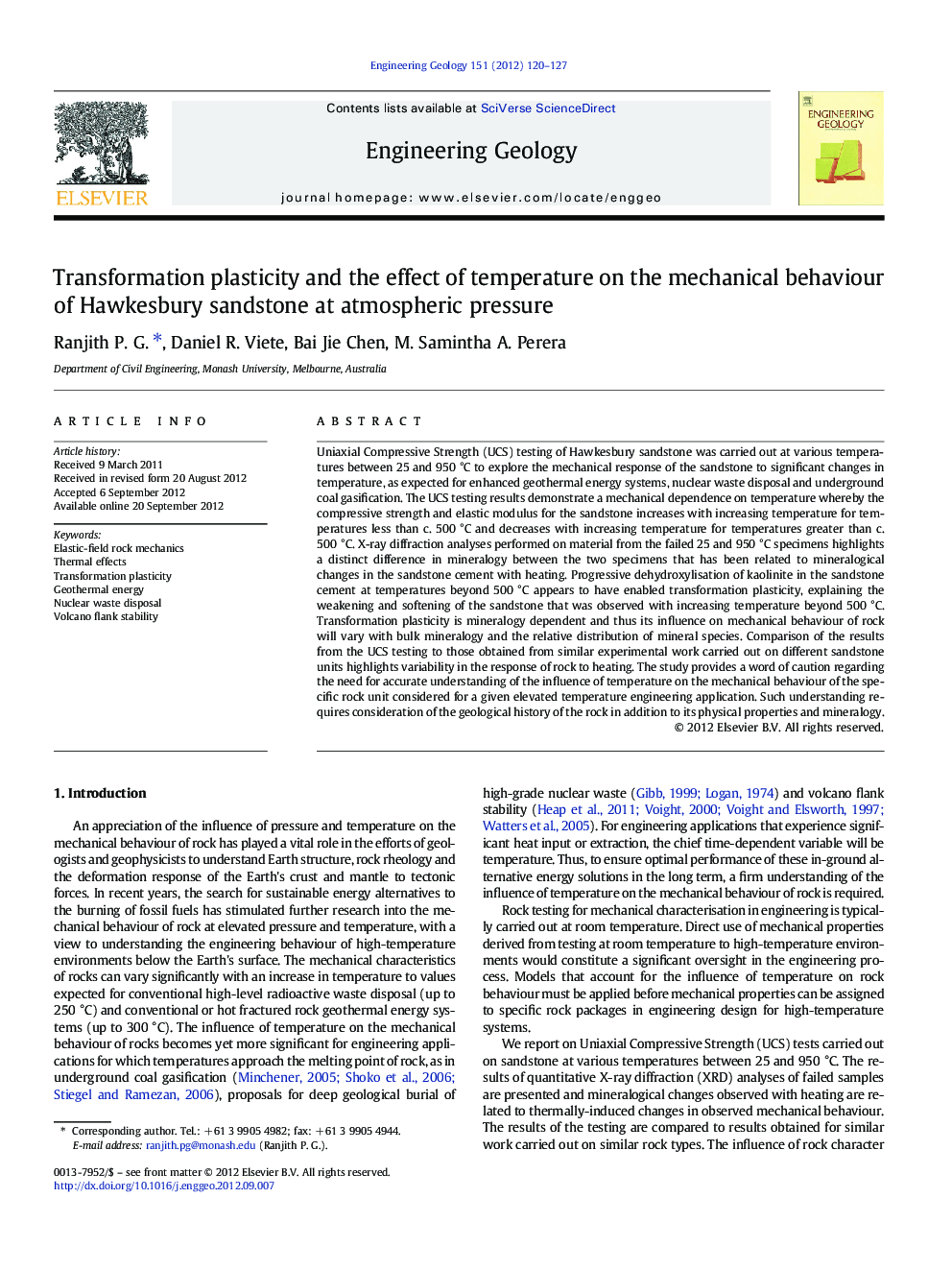| کد مقاله | کد نشریه | سال انتشار | مقاله انگلیسی | نسخه تمام متن |
|---|---|---|---|---|
| 4743910 | 1641832 | 2012 | 8 صفحه PDF | دانلود رایگان |

Uniaxial Compressive Strength (UCS) testing of Hawkesbury sandstone was carried out at various temperatures between 25 and 950 °C to explore the mechanical response of the sandstone to significant changes in temperature, as expected for enhanced geothermal energy systems, nuclear waste disposal and underground coal gasification. The UCS testing results demonstrate a mechanical dependence on temperature whereby the compressive strength and elastic modulus for the sandstone increases with increasing temperature for temperatures less than c. 500 °C and decreases with increasing temperature for temperatures greater than c. 500 °C. X-ray diffraction analyses performed on material from the failed 25 and 950 °C specimens highlights a distinct difference in mineralogy between the two specimens that has been related to mineralogical changes in the sandstone cement with heating. Progressive dehydroxylisation of kaolinite in the sandstone cement at temperatures beyond 500 °C appears to have enabled transformation plasticity, explaining the weakening and softening of the sandstone that was observed with increasing temperature beyond 500 °C. Transformation plasticity is mineralogy dependent and thus its influence on mechanical behaviour of rock will vary with bulk mineralogy and the relative distribution of mineral species. Comparison of the results from the UCS testing to those obtained from similar experimental work carried out on different sandstone units highlights variability in the response of rock to heating. The study provides a word of caution regarding the need for accurate understanding of the influence of temperature on the mechanical behaviour of the specific rock unit considered for a given elevated temperature engineering application. Such understanding requires consideration of the geological history of the rock in addition to its physical properties and mineralogy.
► Uniaxial compressive strength tests were performed on sandstone heated to T = 25–950 °C.
► Strength and elastic modulus increases with increasing temperature for T < 500 °C.
► Strength and elastic modulus decreases with increasing temperature for T > 500 °C.
► Thermal weakening is related to mineralogical changes and transformation plasticity.
► Rock character and geological history controls mechanical response to heating.
Journal: Engineering Geology - Volume 151, 29 November 2012, Pages 120–127